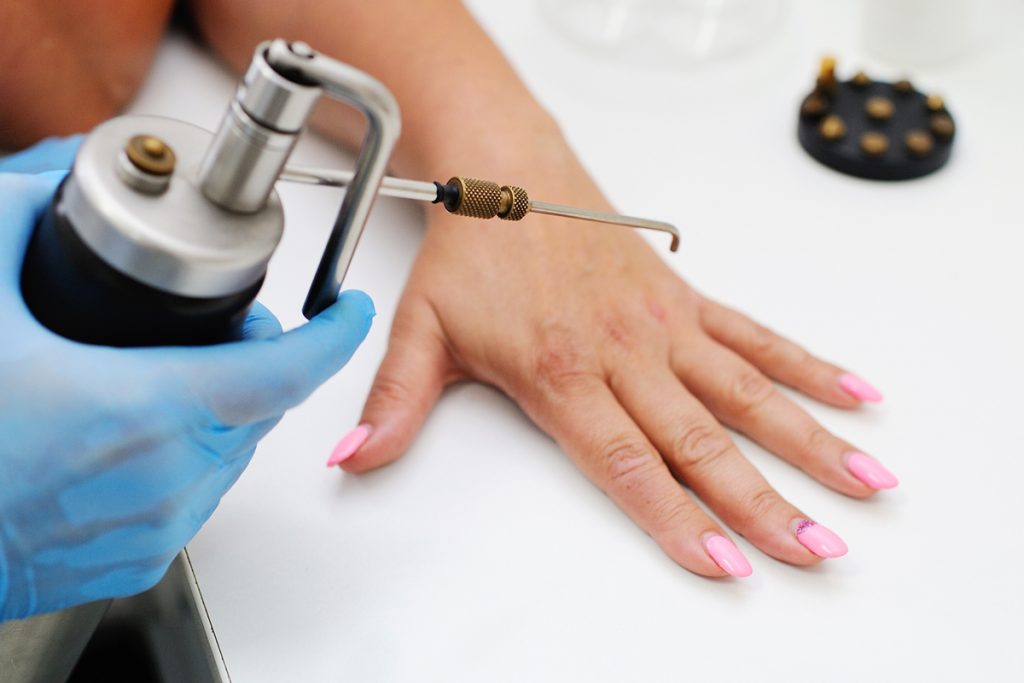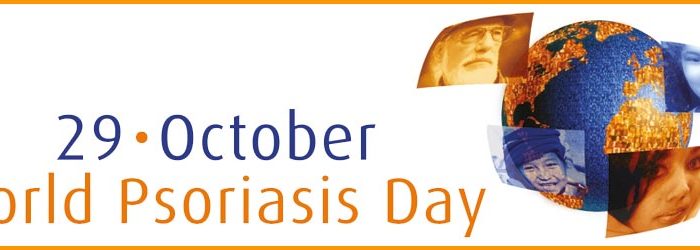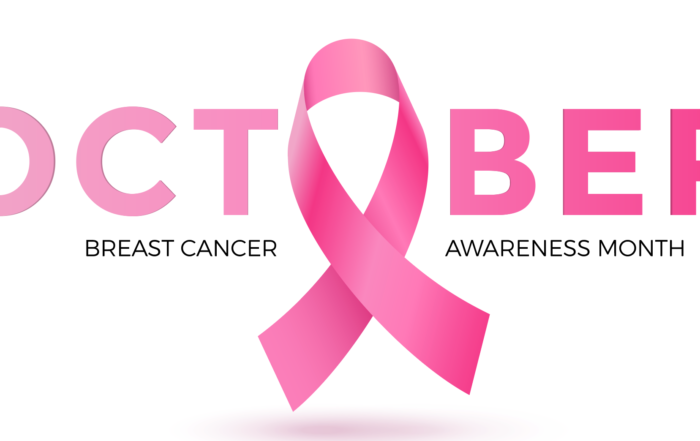Project Description
WARTS
Learn about warts and how Knoxville Institute of Dermatology can help you.
Warts can be one of the most persistent and frustrating skin conditions. Our providers at Knoxville Institute of Dermatology are trained to identify and treat many different types of warts with a variety of treatment options. The customized treatment plan will depend on the age of the patient and the type of wart. The best way to keep warts from spreading is by treating them quickly to avoid shedding of the virus into nearby skin. Contact our office for an appointment today if you have warts that are multiplying, painful or troublesome.
What are viral warts?
Warts are very common non-cancerous growths of the skin caused by infection with human papillomavirus (HPV), a DNA virus. More than 100 HPV subtypes are known, giving rise to a variety of presentations. Skin infection occurs in the superficial layers of the epidermis, causing proliferation of the keratinocytes (skin cells) and hyperkeratosis.
HPV types 2, 3, 4, 27, 29, and 57 are the most common subtypes of HPV in warts. A viral wart on the sole of the foot is also called a verruca, and warty lesions are often described as verrucous.
Who gets viral warts?
Warts are particularly common in:
- School-aged children, but they may arise at any age
- Eczema, due to a defective skin barrier
- People who are immune suppressed with medications such as azathioprine or cyclosporin, or with human immunodeficiency virus (HIV) infection. In these patients, the warts almost never disappear despite treatment.
What causes viral warts?
HPV is spread by direct skin-to-skin contact or autoinoculation. This means if a wart is scratched or picked, the viral particles may be spread to another area of skin. The incubation period can be as long as twelve months.
What are the clinical features of viral warts?
Warts have a hard surface. A tiny black dot may be observed in the middle of each scaly spot, due to a thrombosed capillary blood vessel.
Common warts present as papules with a rough, hyperkeratotic surface ranging in size from 1 mm to larger than 1 cm. They arise most often on the backs of fingers or toes, around the nails—where they can distort nail growth—and on the knees. Sometimes they resemble a cauliflower; these are known as butcher’s warts.
Plantar warts (verrucas) include tender inwardly growing and painful ‘myrmecia’ on the sole of the foot, and clusters of less painful mosaic warts. Plantar epidermoid cysts are associated with warts.
Plane warts have a flat surface. The most common sites are the face, hands and shins. They are often numerous. They may be inoculated by shaving or scratching, so that they appear in a linear distribution (pseudo-Koebner response). Plane warts are mostly caused by HPV types 3 and 10.
Filiform warts are on a long stalk like a thread. They commonly appear on the face. They are also described as digitate (like a finger).
Oral warts can affect the lips and even inside the cheeks, where they may be called squamous cell papillomas.
What are complications of viral warts?
Viral warts are very widespread in people with the rare inherited disorder epidermodysplasia verruciformis. Malignant change is rare in common warts, and causes verrucous carcinoma. Oncogenic strains of HPV, the cause of some anogenital warts and warts arising in the oropharynx, are responsible for intraepithelial and invasive neoplastic lesions including cervical, anal, penile and vulval cancer.
How are viral warts diagnosed?
Tests are rarely needed to diagnosis viral warts, as they are so common and have a characteristic appearance. Pinpoint dots (clotted capillaries) are revealed when the top of the wart is removed. Dermatoscopic examination is sometimes helpful to distinguish viral warts from other verrucous lesions such as seborrhoeic keratosis and skin cancer. Sometimes, viral warts are diagnosed on skin biopsy. The histopathological features of verruca vulgaris differ from that of plane warts.
What is the treatment for viral warts?
Many people don’t bother to treat viral warts because treatment can be more uncomfortable than the warts—they are hardly ever a serious problem. Warts that are very small and not troublesome can be left alone and in some cases they will regress on its own. However, warts may be painful, and they often look ugly so cause embarrassment. To get rid of them, we have to stimulate the body’s own immune system to attack the wart virus. Persistence with the treatment and patience is essential!
Topical treatment includes wart paints containing salicylic acid or similar compounds, which work by removing the dead surface skin cells. The paint is normally applied once daily. Treatment with wart paint usually makes the wart smaller and less uncomfortable; 70% of warts resolve within twelve weeks of daily applications. If the wart paint makes the skin sore, stop treatment until the discomfort has settled, then recommence as above. Take care to keep the chemical off normal skin.
Cryotherapy is normally repeated at one to two–week intervals. It is uncomfortable and may result in blistering for several day or weeks. Success is in the order of 70% after 3-4 months of regular freezing. A hard freeze using liquid nitrogen might cause a permanent white mark or scar. It can also cause temporary numbness.
Electrosurgery (curettage and cautery) is used for large and resistant warts. Under local anesthetic, the growth is pared away and the base burned. The wound heals in two weeks or longer; even then 20% of warts can be expected to recur within a few months. This treatment leaves a permanent scar.
How can viral warts be prevented?
HPV vaccines are available to prevent anogenital warts. Anecdotally, these have been reported to result in clearance of non-genital warts in some people.
What is the outlook for viral warts?
No treatment is universally effective at eradicating viral warts. In children, even without treatment, 50% of warts disappear within 6 months, and 90% are gone in 2 years. They are more persistent in adults but they clear up eventually. They are likely to recur in patients that are immune suppressed, eg, organ transplant recipients. Recurrence is more frequent in tobacco smokers.
WHAT OUR PATIENTS SAY
I have already recommended Dr Raman to a friend. The timeliness getting an appointment, the Covid safe setting, the efficiency of the staff along with the expertise of the doctor are reasons I will return and refer.
I had a recurring dermatological condition for several and a series of dermatologists as a result. And yet until I met Dr. Wright, my condition remained undiagnosed and it turned out to be potentially life-threatening. I am so fortunate to have found him and I would not go to anyone else and recommend him often.
Timely, professional, thorough and took the time to explain the procedure being done and options for upcoming needed procedure. Steps were taken to protect employees and patients against Covid challenges. I had basil cell removed three times and in different states. This office is the best hands down.
This office is very clean, professional and I never have to wait excessive time for my appointment. Dr. Rahman is so thorough and caring and kind. I have had Mohs surgery with Dr. Wright on my face and you cannot even see where the scar is. This is the place to go for your dermatology needs.
I’ll be 77 years old in a month and this was my first real skin check-up. I sort of had one a few years ago at a different place but was turned off by their emphasis on selling cosmetic treatments when I wanted to know about skin disease. Dr. Bakke and his assistant seemed to give me a thorough check, burned off some spots, took.a few biopsies, and I was good to go.
Everyone is so nice and friendly…the office staff is caring, professional and an asset to your institution. Even though I’ve been going to your office for a few years this is the first time I saw Kegan Reilly. He was very professional and very knowledgeable. He explained everything to me in detail and made me very comfortable in an uncomfortable situation. I highly recommend him for anyone who needs to see a dermatologist. He is definitely an exceptional medical provider.
I will be forever grateful to Dr. Anderson for her careful skin exam and detection of the start of a melanoma on my arm. She is pleasant, professional, and kind– everything you would want in a dermatologist.
Dr. Anderson and her staff are excellent. I have been a client for several years. I have received the best care. Dr. Anderson is excellent in discovering and treating. problems. Dr. Anderson listens and is honest.
The whole experience was a positive one… getting an appointment to see someone relatively soon, receiving several reminders, the (covid) health protections at the office, and the very pleasant and knowledgeable care of Lindsey Best FNP, at my appointment.
Sent email & text to inform of arrival procedures, took proper covid-19 protocol to ensure my safety and that of staff and other patients. Doctor and nurse took time to explain what would happen during visit and answered all questions. Explained proper home care of procedure site, made sure I knew how and informed to call office if any problems or questions. Everyone was very helpful, friendly and professional.
Contact Provider via Patient Portal
To access your portal, type kid.ema.md into a Mozilla Firefox browser. Your username will be your personal email address that needs to be provided to the front desk staff. A link will be sent to that [...]
Welcome Nathan Bowers, MD, PhD
Nathan Bowers began his training by earning a PhD in Immunology at the University of Alabama at Birmingham. Driven by a lifelong desire to care for patients in a clinical setting, he then [...]
New Location: Morristown!
Knoxville Institute of Dermatology is excited to announce our newest location in Morristown! We will be located in the Baptist Eye Surgeons building and seeing patients starting in January 2023. Call our office today [...]
Updated COVID-19 Guidelines
Thank you for your continued patience and understanding as we have taken the progressive steps to keeping our practice open for all of your dermatological needs during these unprecedented times. As always, the health [...]
World Psoriasis Day
It's almost October 29th and our physicians and staff are PSO excited to celebrate World Psoriasis Day! World Psoriasis Day is a campaign held annually on October 29th aiming to bring awareness to this [...]
October is Breast Cancer Awareness Month
October is Breast Cancer Awareness month. This annual month-long campaign is designed to bring awareness to one of the most common cancers, aside from skin cancer, in women. Each year in the United States, more [...]









